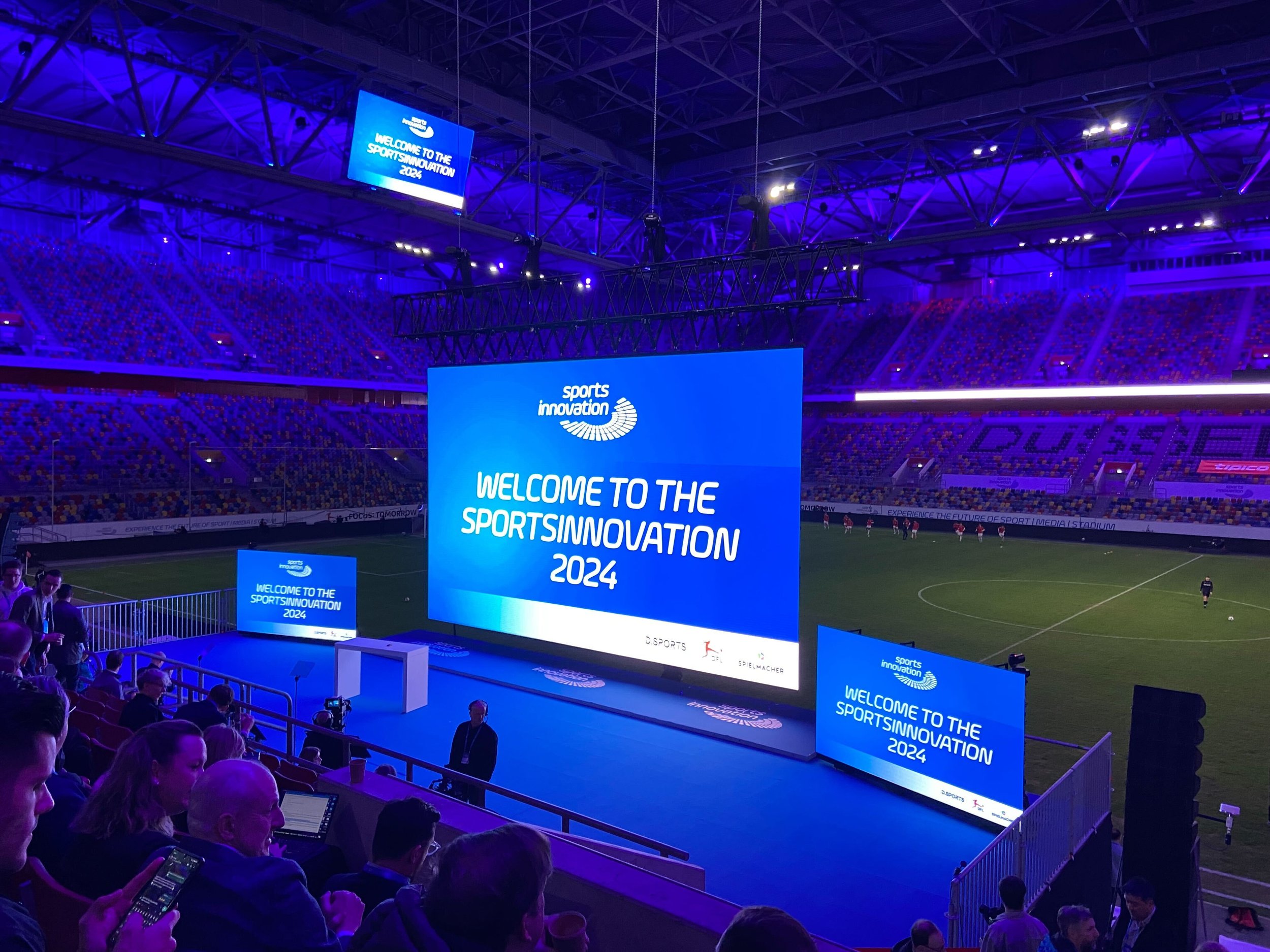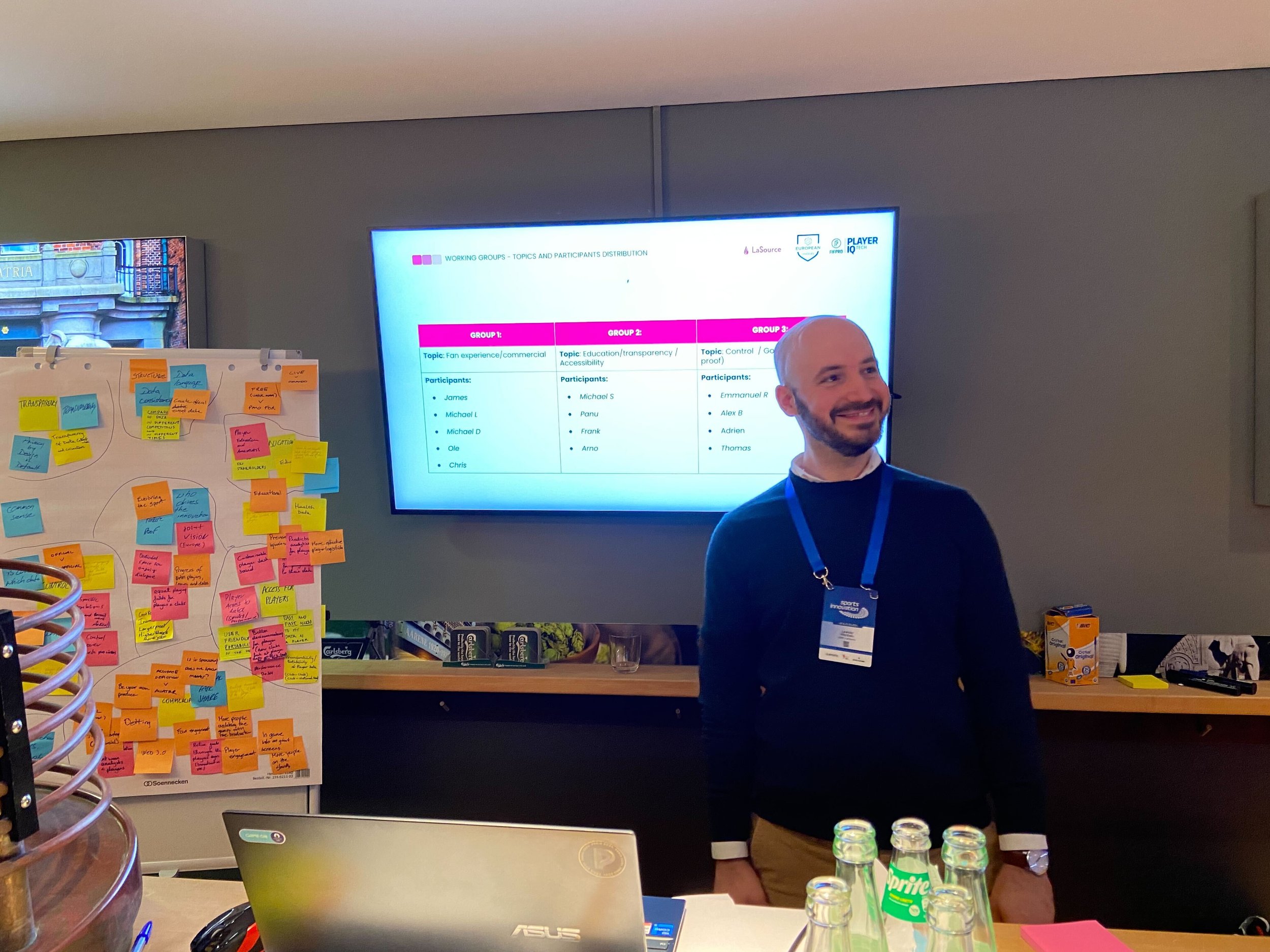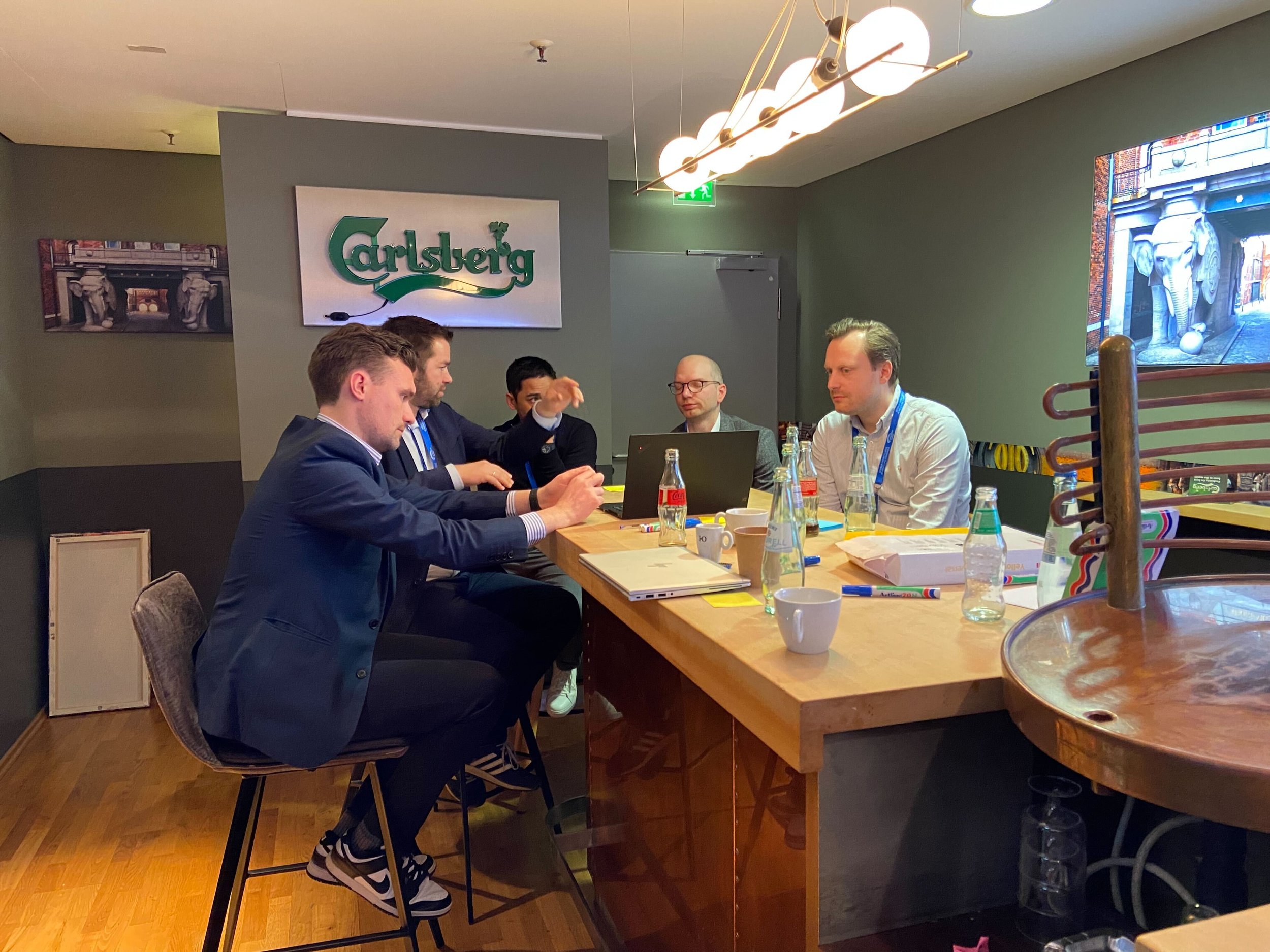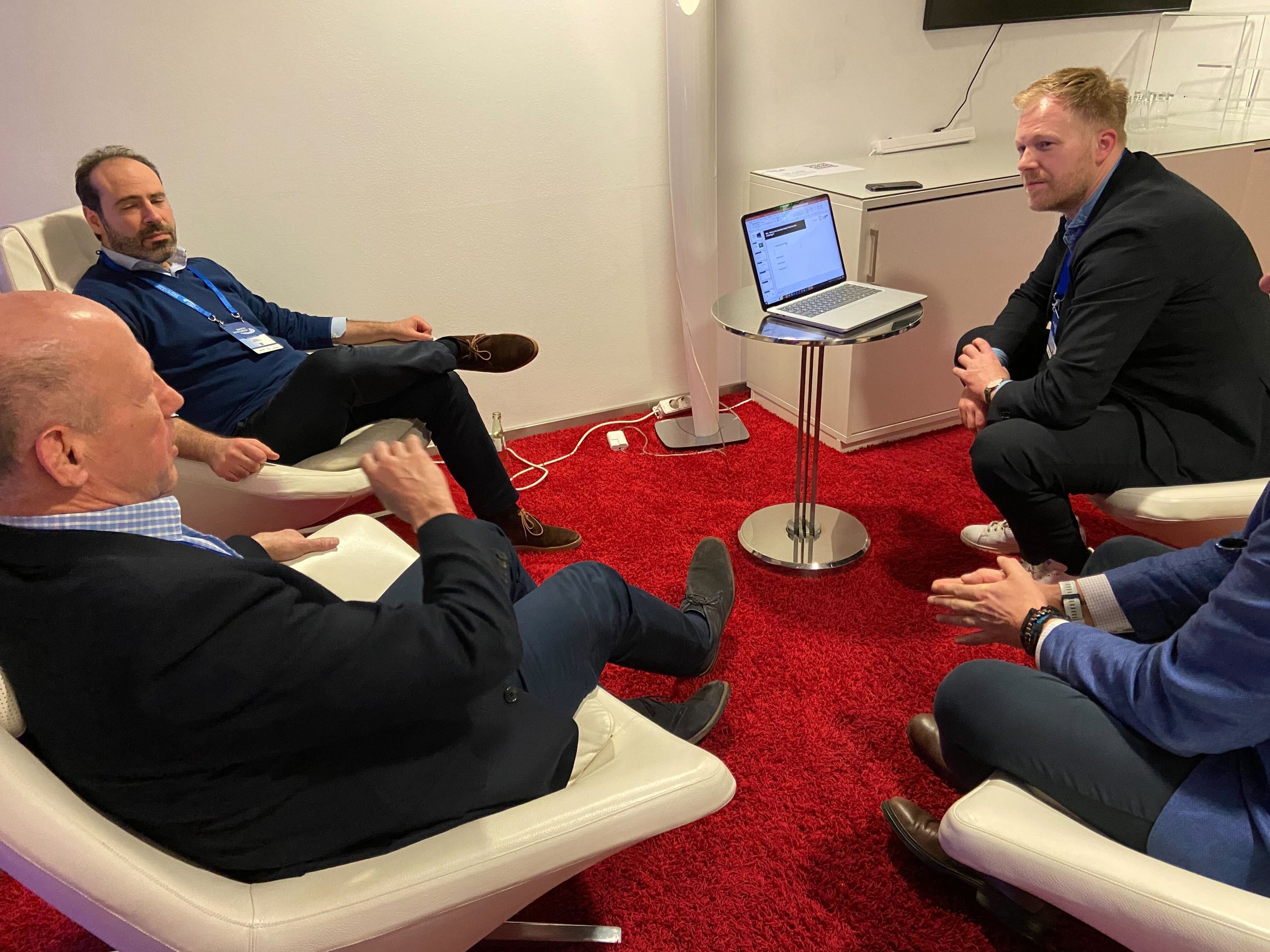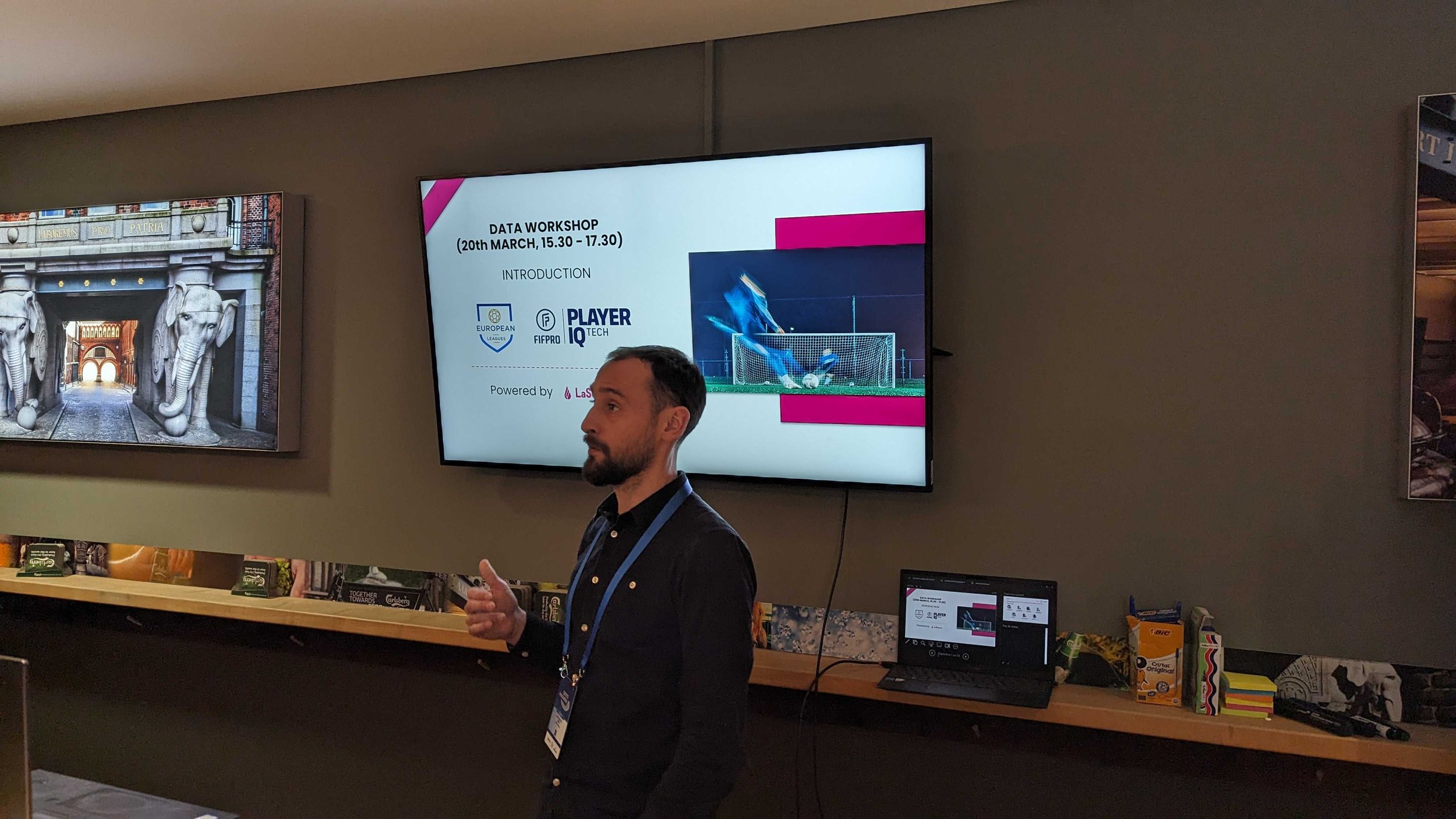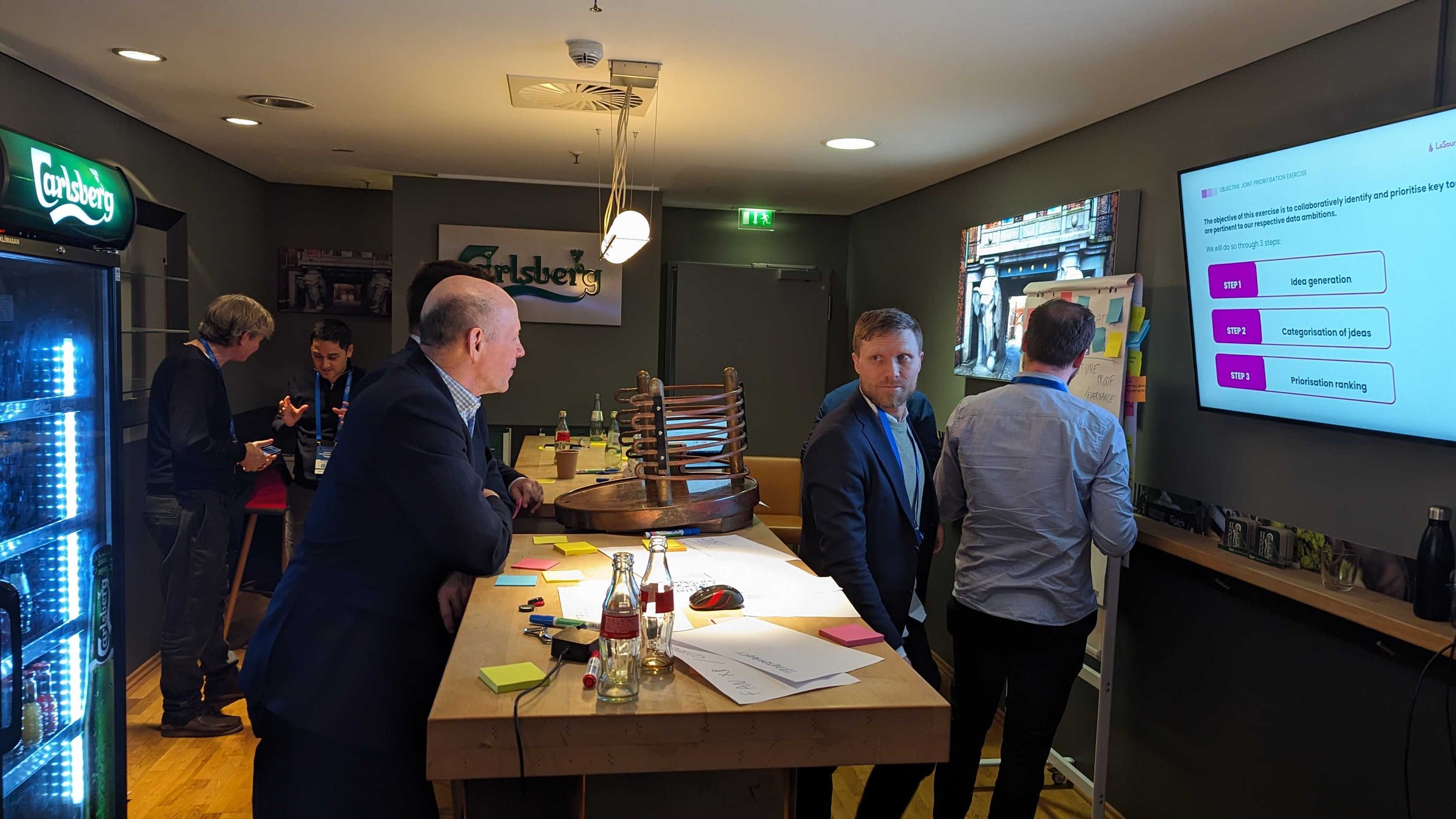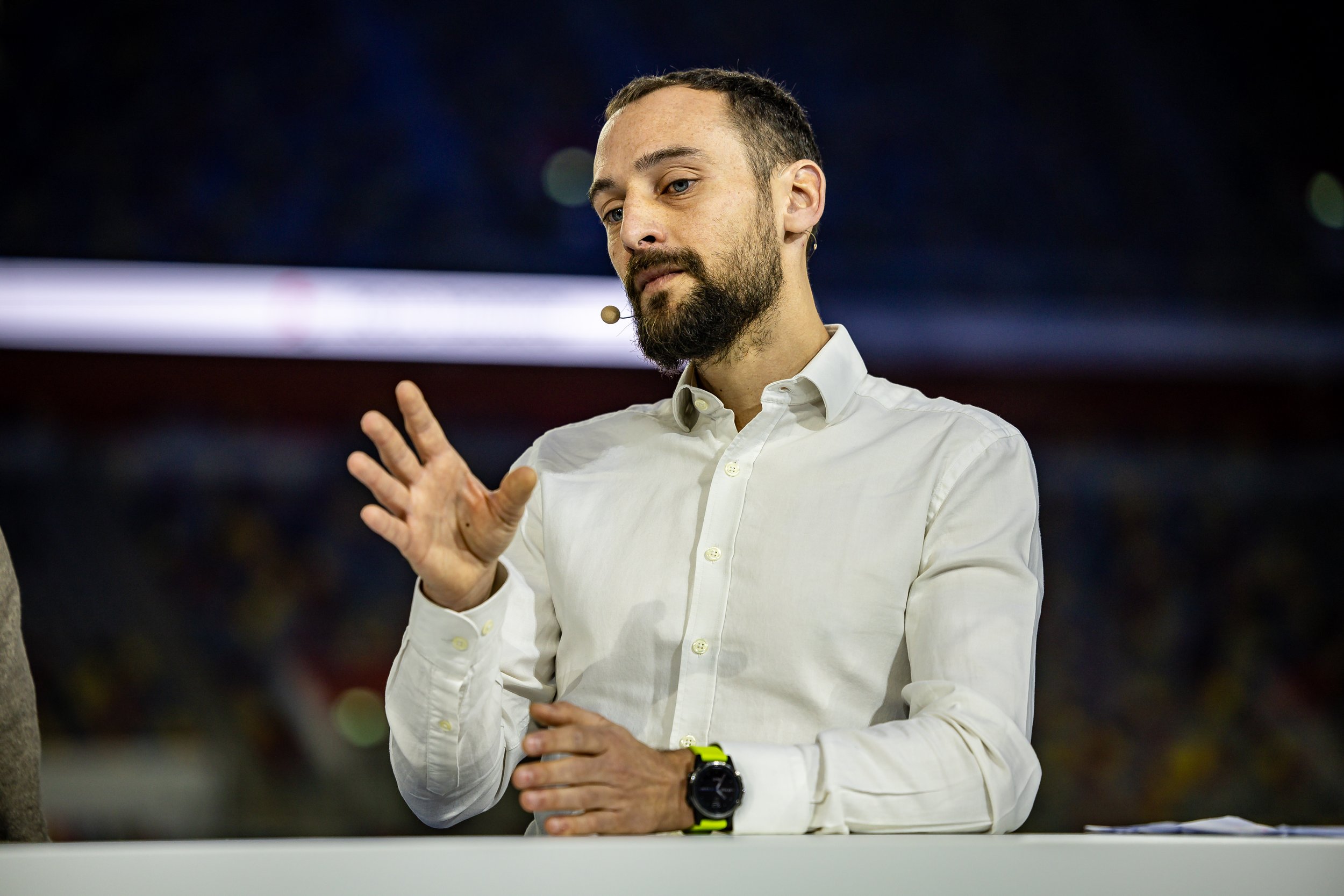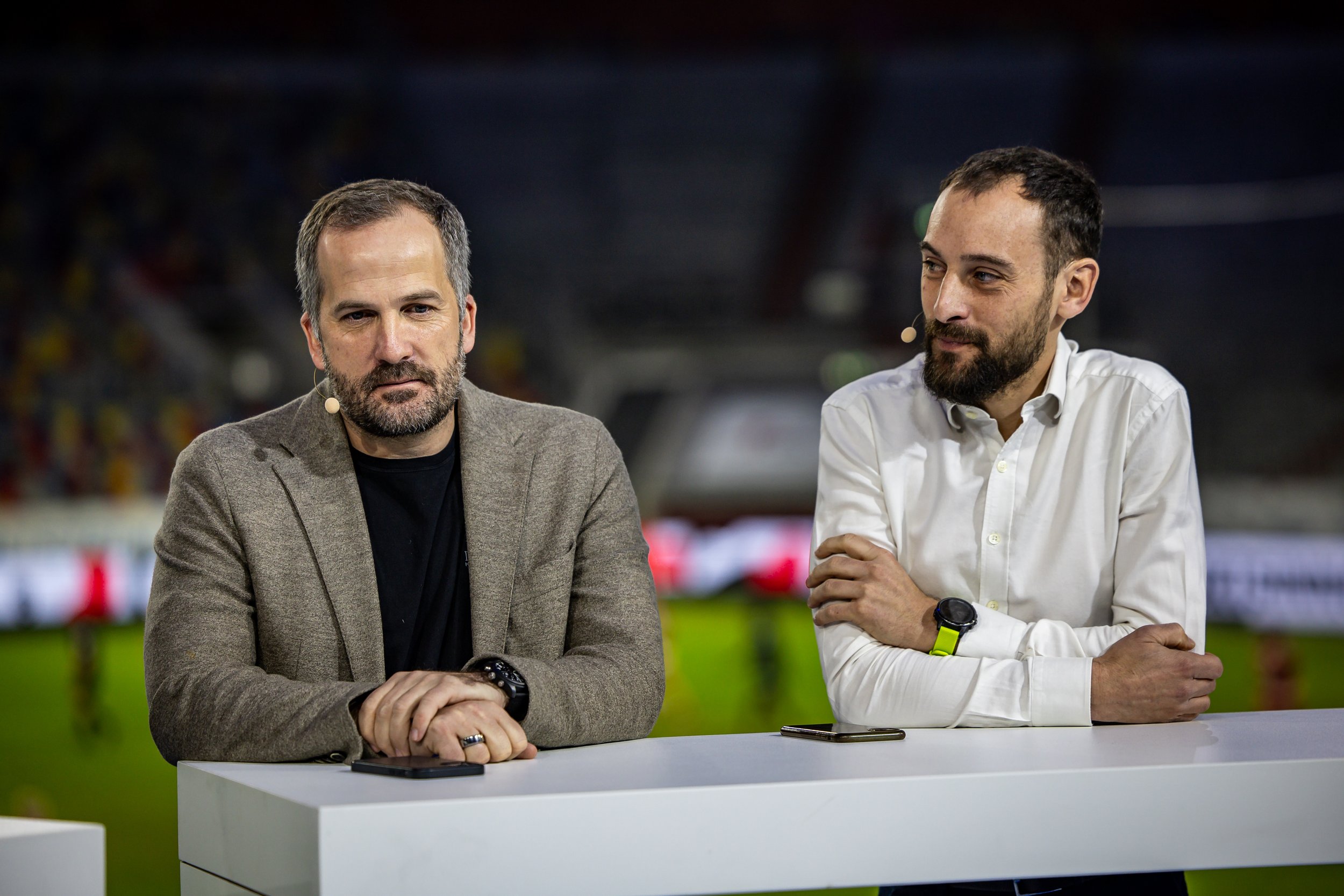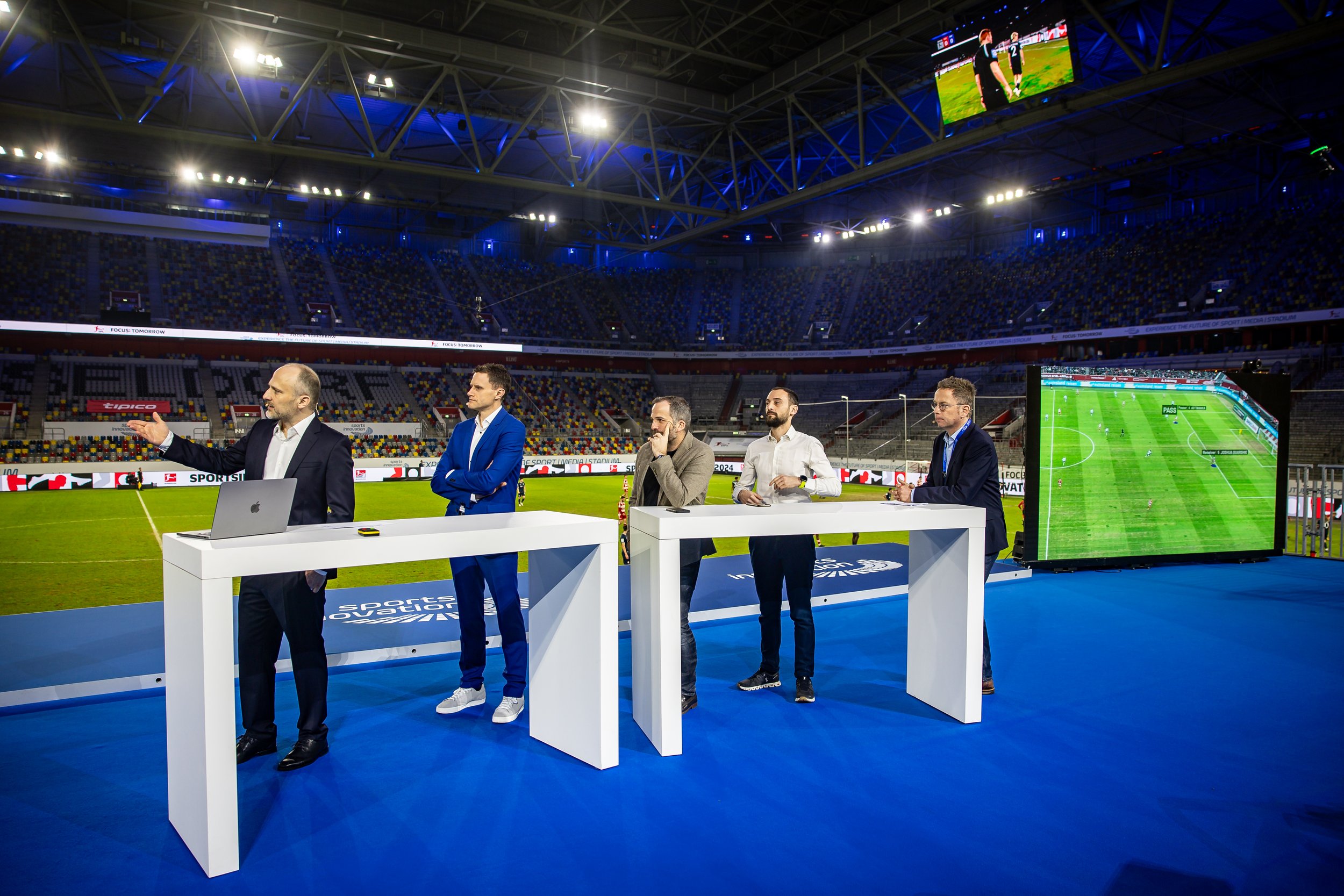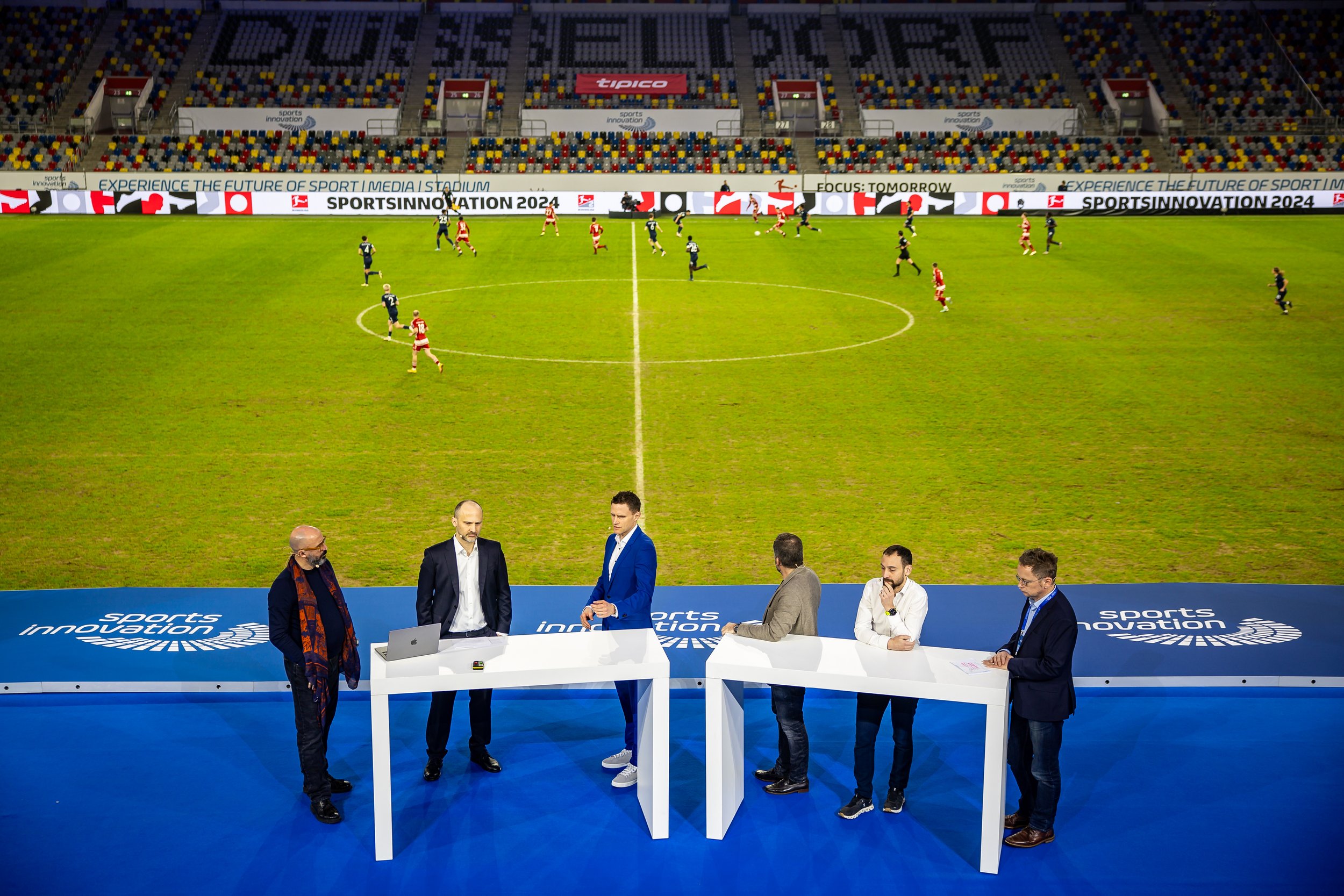SportsInnovation 2024: LaSource’s Glimpse into the Present and Future of Sports Tech
SportsInnovation called curtains on yet another landmark event last week. The DFL’s flagship event, organised once every two years, was as prestigious in its learnings as it was with its aesthetics. Hosted at the Merkel Spiel-Arena in Düsseldorf, attendees were granted access to the diverse technologies shaping various aspects of the beautiful game and the sports industry overall.
Our team of Samuel Westberg, Jean-Baptiste Alliot and Leander Monbaliu, had a blast engaging with Clubs, Leagues, Federations and sports tech companies, absorbing the technological developments out there. Assisting sports organisations in developing a robust data strategy is one of the services we offer at LaSource. It was gratifying to witness our contributions within this field highlighted at an event of SportsInnovation’s calibre. From JB’s panel discussion on “A new generation of data to enhance sports performance” to our workshop on Data with FIFPRO Europe and European Leagues, it was a truly enriching experience, one that we will discuss further along the piece.
Data Workshop:
The ownership of sports data has undergone significant evolution, primarily propelled by technological advancements and shifting business paradigms. Sports organisations and players were traditionally positioned outside the sports data value chain. However, in recent times, there has been a notable shift, with national associations, football leagues and players’ unions adopting a more proactive approach. They now recognise the importance of asserting greater control over data and seizing the commercial and intellectual opportunities it presents.
At SportsInnovation, our Chief Business Officer, Leander Monbaliu, and Chief Strategy Officer, Jean-Baptiste Alliot, spearheaded a workshop. The aim was to delve into shared interests, tackle challenges, and uncover opportunities for collaboration between European Leagues (EL) and FIFPro within the Sports Data Value Chain. This workshop had a dual objective: firstly, to kickstart dialogues aimed at exploring effective strategies for EL and FIFPro members to navigate the intricate data landscape. Secondly, it emphasised fostering a constructive approach focused on addressing collective needs, refining priorities, and pinpointing actionable issues. The ultimate goal was to yield tangible outcomes and lay the groundwork for future collaborations by establishing common ground.
JB’s Panel Discussion - “A New Generation of Data to Enhance Sports Performance.”
Continuing our exploration of data, JB took to the stage with his fellow panellists from the DFL, Sportec Solutions and RB Leipzig to delve deeper into how data enhances Sports Performance. A key theme of this discussion was the transformative effect of data on player and coaching analysis. Sportec Solutions demonstrated their advanced player tracking and "limb tracking" technology that can recreate matches in a 3D digital environment with only a few seconds of latency. As Manuel Baum from RB Leipzig mentioned, collecting metadata of players' movements is a fundamental aspect of enhancing coaching techniques. This data would enhance the player’s perception of the game, leading to better decision-making and execution on the pitch.
JB provided his perspective on leagues' and clubs' maturity in adopting this tech and understanding its true potential. He emphasised that valid use cases are prevalent in the market, and sports organisations are taking notice (Read how the (Norwegian League is embracing a centralised strategy). So, the fact that these developments are starting to materialise so effectively bodes well for a strong future where the quality of sports is enhanced and its commercial potential is realised.
Our Vision for the Sports Industry - Looking Ahead!
The live demonstrations of new and advanced technologies at SportsInnovation 2024 not only provided a unique experience but also made their impact on the sports product very tangible for the audience.
One significant aspect is the utilisation of sports data. Leagues are increasingly recognising the value of owning and leveraging this data, understanding its implications for rights holders and professional players and the vast commercial opportunities it unlocks.
The realm of data, particularly at large scale, has been a domain filled with promises, not all of which have materialised into tangible outcomes. Moreover, there has been a noticeable stagnation in the innovation sphere over the last few years. Amidst discussions about immersive and personalised content, today's reality is shaped by strong IT capabilities, and AI stands at the forefront, offering genuinely hyper-personalized experiences in a financially viable manner. In the past, delivering such experiences often relied on human intervention and incurred significant costs. The future will be predominantly technology-led, marking a significant shift in how personalised content is created and delivered.
As Steffen Merkel, CEO of the DFL said in his opening keynote: “The collection and processing of data, AI and mixed reality are making things possible that previously seemed unthinkable. And not only for innovative content, but also for football as a game”.
Looking ahead to the next SportsInnovation Summit in 2026, the industry anticipates further evolution by adopting new technologies to enhance all aspects of sports. The promising signs thus far pave the way for an exciting journey ahead!
LaSource is a sports consulting agency working closely with startups, sports tech companies, and sports and media organisations to create and implement business strategies that accelerate growth and shape the future of the Sports industry.

